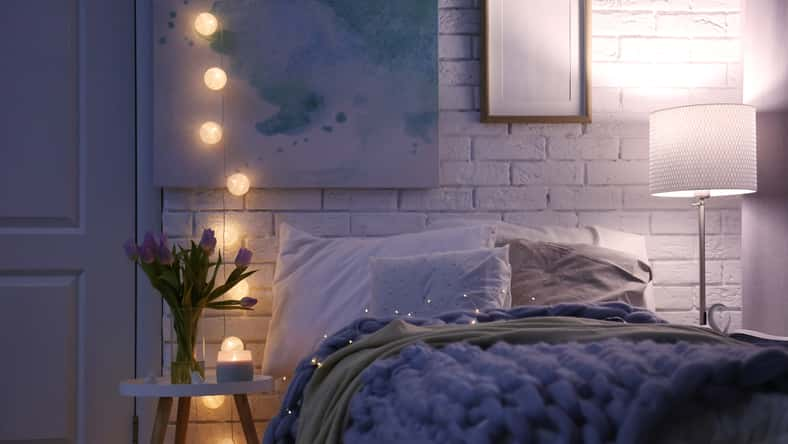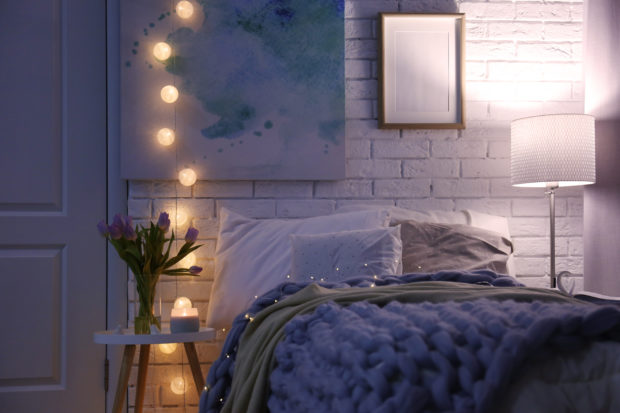Study Finds That Older Adults Who Fall Asleep With Lights On Are At An Increased Risk For Diabetes, High Blood Pressure, And Obesity

Do you have trouble falling asleep without a nightlight or the television on? Or worse, do you fall asleep while using devices like smartphones or tablets?
Well, a new study conducted by Dr. Minjee Kim– an assistant professor of neurology at Northwestern University’s Feinberg School of Medicine– found that older adults who partake in these habits are at higher risk of being obese, having high blood pressure, and diabetes.
Dr. Kim did note, though, that there is only a correlation, not causation, between bedtime light exposure and these three health conditions. Nonetheless, she believes that humans’ biological disposition may be the cause.
“It is not natural to see those lights at night. Light actually turns off some of the parts in the brain that tell our body it is daytime versus nighttime,” Dr. Kim said.
“So, those signals are messed up in a way since our circadian signal is weakened. And over time, that has implications for our health,” Dr. Kim continued.
In particular, too much nighttime light exposure may lead to metabolic and heart diseases.
The study encompassed over five hundred and fifty participants who took part in the Chicago Healthy Aging Study.
Their ages ranged from sixty-three to eighty-four years old.
While each participant slept, they wore a device that could measure how much light was present in their bedrooms over a one-week period.

Africa Studio – stock.adobe.com – illustrative purpose only, not the actual person
Sign up for Chip Chick’s newsletter and get stories like this delivered to your inbox.
Dr. Kim and her team shockingly found that less than half of the participants slept in complete darkness for at least five hours. Moreover, the other participants were exposed to light during even the latest hours of the day.
The research team is still unsure if conditions such as diabetes, high blood pressure, and obesity are pushing people to sleep in illuminated environments or if the environmental state of light led to these conditions’ development.
Regardless, this study underscores how important maintaining the human body’s circadian rhythm is for ensuring overall good health.
Emerson Wickwire, the head of sleep medicine at the University of Maryland School of Medicine, peer-reviewed this study and offered his conclusion.
“What these data show is that exposure to light at nighttime increases risks for two of the most common and costly chronic medical conditions in the U.S. and worldwide– obesity and diabetes– as well as hypertension, a major cardiovascular risk factor,” Wickwire said.
Moreover, he provided a few suggestions for how to “best sleep.”
First, separate your bedroom environment from your work or recreational environment. Your bedroom should be cool, quiet, dark, and only meant for sleeping.
Afterward, be sure to keep your lights off while trying to fall asleep. And if you cannot control light outside of your windows, you can use blackout shades or invest in an eye mask. Finally, if you are up for a bit of reorganization, you can also reposition your bed to ensure it does not face toward any incoming light.
For more information on how to get a good night’s sleep, you can visit the National Institute on Aging’s sleep resources linked here.
If true crime defines your free time, this is for you: join Chip Chick’s True Crime Tribe.
Her Boyfriend Broke Up With Her Because She Gave Her Mom A Card On Father’s Day
She Shared A Video Washing Her Kale In A Washing Machine And TikTok Has Questions
More About:Human Interest





